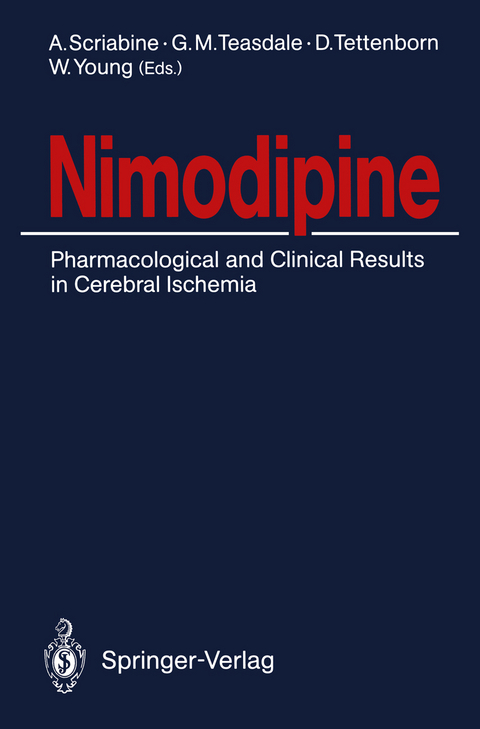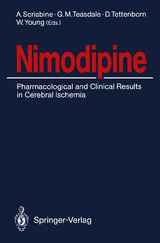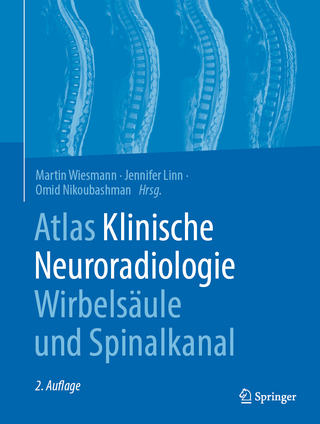Nimodipine
Springer Berlin (Verlag)
978-3-540-53405-1 (ISBN)
The chapters in this volume are based on presentations made at the Second International Symposium on Nimodipine held in Miami Beach, Florida, USA, on April 25 -28, 1990. The Symposium dealt primarily with the results of recent clinical studies on the effects of nimodipine in acute neurological disor ders: subarachnoid hemorrhage, acute ischemic stroke, cerebral resuscitation following cardiac arrest and head trauma. The first session was devoted to pharmacology of nimodipine and its effects in various models of cerebral ischemia. Nimodipine was synthesized at the Research Laboratories of Bayer AG, Wuppertal, Germany, by Meyer et al.; its pharmacology was studied initially by Hoffmeister, Kazda, Garthoffand Towart, also in Wuppertal. Nimodipine was found to be a potent cerebral vasodilator and to reduce mortality in stroke-prone spontaneously hypertensive rats. In addition to its cerebrovascu lar effects, nimodipine was shown to block L-type Ca2+ channels in neurons, to reduce neuronal uptake of Ca2+ and to antagonize various neurotoxins. The beneficial effects of nimodipine in the treatment of disorders of central nervous system may be attributed either to cerebrovascular or to a direct neuronal action with evidence favoring increasingly the latter mechanism.
Session I. Pharmacology.- Pharmacology Overview: Nimodipine in CNS-Indications.- Changes in Intracellular Free Calcium During Cerebral Ischemia and the Effects of Nimodipine on Calcium and Histological Damage.- Experimental Models of Focal Ischemia: Results with Nimodipine.- The Effect of Nimodipine Pretreatment on Focal Cerebral Ischemia in the Hypertensive Rat.- Cardiac Arrest, Stroke, Subarachnoid Hemorrhage, and Severe Head Injury: What do They Have in Common?.- Dihydropyridines Attenuate Slow Excitatory Amino Acid Neurotoxicity.- Session II. Subarachnoid Hemorrhage.- The Pathophysiology of Arterial Narrowing and Delayed Ischemic Deficit After Subarachnoid Hemorrhage.- Advances in the Diagnosis and Treatment of Aneurysmal Subarachnoid Hemorrhage.- Reviews of Trials on the Effect of Oral Nimodipine on Cerebral Infarction and Outcome Following Subarachnoid Haemorrhage.- Treatment by Nimodipine of Ischemic Neurologic Deficits Due to Vasospasm.- Safety Profile of Nimodipine in Patients with Subarachnoid Hemorrhage.- Session III. Acute Ischemic Stroke.- Pathophysiology of Ischemic Brain Disease.- Positron Emission Tomography in Nimodipine-Treated Patients with Acute Ischemic Stroke.- Brain Regional Pharmacokinetics of 11C-Nimodipine in Patients with Acute Stroke: A Preliminary Account of a Positron Emission Tomographic Study.- Nimodipine and Other Calcium Antagonists in Acute Ischemic Stroke.- Pool Analysis of the European Studies of Nimodipine in Acute Ischemic Stroke.- Session IV. Cerebral Resuscitation.- Pharmacokinetics of Nimodipine in the Dog Resuscitated After Cardiopulmonary Arrest.- Plasma Concentrations of Nimodipine in Patients Resuscitated After an Out-of-Hospital Cardiac Arrest.- Influence of Nimodipine on Cerebral Blood Flow After Cardiac Arrest in Humans.-Early Effects of Nimodipine on Intracranial and Cerebral Perfusion Pressures in Cerebral Anoxia After Out-of-Hospital Cardiac Arrest.- Nimodipine in Out-of Hospital Ventricular Fibrillation: A Randomized, Double-Blind, Placebo-Controlled Clinical Trial.- Session V. Severe Head Injury.- Epidemiology of Severe Head Injury: Socio-economic Consequences of Avoidable Mortality and Morbidity.- Concussion Produces Dynamic Changes in Metabolism and Calcium Accumulation Resulting in Prolonged Neurological Deficits.- The Effect of Nimodipine Following Experimental Head Injury in Rats.- Spinal Cord Injury and the Possibilities of Treatment with Calcium Antagonists.- The Effect of Nimodipine on Outcome After Head Injury: A Prospective Randomized Controlled Trial.
| Erscheint lt. Verlag | 31.12.1990 |
|---|---|
| Zusatzinfo | XIV, 277 p. |
| Verlagsort | Berlin |
| Sprache | englisch |
| Maße | 155 x 235 mm |
| Gewicht | 520 g |
| Themenwelt | Medizinische Fachgebiete ► Chirurgie ► Neurochirurgie |
| Medizinische Fachgebiete ► Innere Medizin ► Kardiologie / Angiologie | |
| Medizin / Pharmazie ► Medizinische Fachgebiete ► Neurologie | |
| Medizin / Pharmazie ► Medizinische Fachgebiete ► Pharmakologie / Pharmakotherapie | |
| Schlagworte | Aneurysm • brain • Cerebral ischemia • Head • Head Injury • neurotoxicity • Nimodipine • pathophysiology • Pharmacokinetics • Physiology • positron emission tomography (PET) • Research • spinal cord • stroke • Tomography • Trauma |
| ISBN-10 | 3-540-53405-9 / 3540534059 |
| ISBN-13 | 978-3-540-53405-1 / 9783540534051 |
| Zustand | Neuware |
| Informationen gemäß Produktsicherheitsverordnung (GPSR) | |
| Haben Sie eine Frage zum Produkt? |
aus dem Bereich




